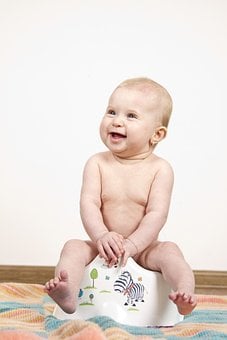Language for our Littlest Learners

Learning to talk, listen, and understand #language is a big part of a child’s #early #growth. These skills help children succeed in school, build friendships, and #express their thoughts and feelings. As a child care provider, you #play an important role in helping children #develop strong language and communication skills.
Why Early Language Skills Matter
From a baby’s first sounds to a #toddler’s short sentences, early #language-skills are the building blocks for future learning. When children hear and use language often, they become better at thinking, understanding, and connecting with others. Strong language skills help children do well in school and feel more confident in social situations.
Using Sign Language with Infants
Babies can use their hands to talk before they learn to speak. Teaching simple sign language—like signs for “more,” “milk,” or “all done”—gives them a way to share their needs. This reduces frustration and helps them feel understood.
Using sign language also helps babies learn to speak faster and grow their vocabulary. It’s a great tool for early communication.
Creating a Language-Rich Environment
Children learn language best when they are surrounded by it. You can support their learning by:
- Talking to them throughout the day (like during meals or playtime)
- Asking questions that help them think and answer
- Reading #books together every day
- Singing songs, using rhymes, and playing with sounds
- Using gestures and facial expressions to show meaning
These simple actions help children hear new words, learn how to use them, and enjoy communicating.
Helping Children Get Ready to Read
Reading doesn’t start with books alone. It starts with talking, listening, and playing with sounds and stories. You can help by:
- Reading different kinds of books
- Showing them letters and words in their daily world (like signs or labels)
- Letting them tell stories or talk about pictures
- Giving them crayons and paper to draw and scribble
These fun activities help children get ready to read and write later on.
What You’ll Learn in the Training
In the “Language Development in Early Childhood” training, you will learn how to:
- Use sign language with babies to help them communicate
- Use different ways to help children talk and understand language
- Understand why early language and literacy skills are important
- Try out simple strategies to support children’s learning every day
Making a Difference
When you support children’s #language- #development, you are helping them grow in many ways. Your daily interactions can help children feel more confident, ready to learn, and able to connect with others. With the right tools and ideas, you can make a big difference in their lives.
- 24 Hour Texas Pre-Service
- Language Development in School Age
- Supporting Families and Caregivers in Language and Literacy
- Let's Talk: Skills for Effective Communication
- Building Bridges for Dual Language Learners
- CDA Bridge Bundle: Family Child Care without Portfolio Review
- CDA Bridge Bundle: Infant/Toddler without Portfolio Review
- CDA Bridge Bundle: Preschool without Portfolio Review
- Language Development in Early Childhood
- Effective and Engaging Classroom and Home Daycare Room Arrangements
- Language for our Littlest Learners
- Tiny Tots, Big Learning: Crafting Curriculums for the Littlest Learners!
- How to Foster a Growth Mindset in Young Children
- How to Make Your Circle Time More Inclusive for All Learners
- 🎉STEM-sational Fun: How Can You Spark Preschoolers’ Curiosity with Engaging STEM Activities? 🔬🧪🔢
- Many Languages, One Classroom: How to Celebrate and Support Multilingual Learners in Early Childhood
- Sweet Tea & Tiny Smiles: What’s Brewing in South Carolina’s Early Childhood Scene?
- How Can We Adapt Our Teaching Approaches to Meet Different Learning Styles in Young Children?
- From Tummy Time to Safe Sleep: SIDS and Safe Sleep Online Training for MD Childcare
- Supporting Dual Language Learners in Child Care Settings
- How Play Supports Brain Development in Infants, Toddlers, and Preschoolers
- Inclusive Practices in Early Childhood Education
- Good Friday in the Classroom: A Kind Approach for Early Learners